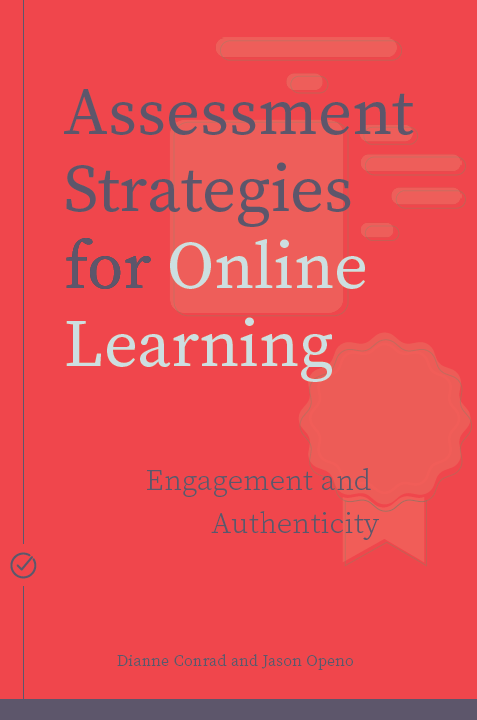Last night, 806 - one of the final program requirements - began. We are asked to write a short reflection after each session.
It was important for me to hear the stories of struggle, persistence and resilience from others last night, and I am made better by hearing these interrupted journeys, setbacks, and triumphs. “It’s not your life’s work; it’s a program requirement.” That’s what I was told four years ago. Maybe it’s not my life’s work. But maybe it is.
When I decided to pursue the EdD in Distance Education, I was driven by the ambition to become Dr. J. I had made a career change into postsecondary teaching and learning after 20 years in libraries, and even though it wasn’t required for my position, I pursued the doctorate for reasons of credibility (to be in “the club”) and to raise the ceiling of what would be possible for my future.
I didn’t want to do anything fancy; I wanted to study the effect of peer assessment using learning analytics because my favourite quote about teaching is this:
The best answer to the question, ‘What is the most effective method of teaching?,’ is that it depends on the goal, the student, the content and the teacher. But the next best answer is, ‘Students teaching other students.’ (McKeachie, Pintrich, Lin & Smith, 1987, p. 75)
Downes (2013) disagrees, calling peer assessment “the blind leading the blind,” but the topic felt cutting-edge and necessary to achieve high-end e-learning-at-scale. Leading learning analytics scholars were realizing that analytics is often – but should not be – decoupled from the actual instructional conditions (Gasevic, Dawson, Rogers & Gasevic, 2016), and there were gaps in the literature. I had no illusions that it was going to be easy, but it felt straightforward because I had access to 60 students in the online course I teach at the University of Alberta’s Graduate School of Library and Information Science. It felt like a humble project, in the best sense of that word – free from pride and another important micro-level study into the complex dynamics of online course design.
Then, ambition got in the way. At the end of 801, Dr. Dianne Conrad asked me if I would be interested in writing a book on assessments in online learning contexts with her. My response: “I’d be crazy to say no, but I would be even crazier to say yes.” To take on a book project when I was about to start 802 was a decision made out of ambition, and I realized that I had (again) been a master of self-deception. I wanted something more than a doctoral degree – I wanted to be a scholar, I wanted to be an academic, and I wanted to be a leader (even though I am not sure I can define what I mean by any of those labels). The book came out in July 2018, and I am thrilled, but also humbled – it wasn’t easy; I haven’t always been the best-version of myself throughout the process. I have wondered, was the ambition worth it if, at the end of the day, I am only more certain that all is vanity, and that there is nothing new under the sun? My ambition has diminished me on more than one occasion.
Doubts and disillusionment about the wonders of technology further caused me to change direction for my dissertation. The messages of Selwyn (2014) and Veletsianos and Moe (2017) had started to sink in. I also came across Ursula Franklin’s Massey Lectures entitled The Real World of Technology.
As more and more of daily life in the real world of technology is conducted via prescriptive technologies, the logic of technology begins to overpower and displace other types of social logic, such as the logic of compassion or the logic of obligation, the logic of ecological survival or the logic of linkages to nature. (Franklin, 1990, p. 95).
Was that not the deepest concern of my heart – that technology was displacing other forms of social logic and that I was part of that process? Selwyn notes that “the de facto role of the academic educational technologist is understood to be one of finding ways to make these technology-based improvements happen” (Selwyn, 2014, p. 12), or in Franklin’s words, my role as a director of a teaching and learning centre is to make the world “safe for technology” (1990, p. 120). Is that what my ambition is turning me into – part of the forces displacing the logic of compassion, obligation, and ecological survival? This is a humbling thought, and part of the struggle I decided to work out in my proposal, which has become my life’s work.
Downes, S. (2013). Assessment in MOOCs [Web log post]. Retrieved from http://halfanhour.blogspot.com.es/2013/05/assessment-in-moocs.html
Franklin, U. (1990). The real world of technology. Toronto, ON: CBC Enterprises
Gašević, D., Dawson, S., Rogers, T., & Gasevic, D. (2016). Learning analytics should not promote one size fits all: The effects of instructional conditions in predicting academic success. The Internet and Higher Education, 2868-84. doi:10.1016/j.iheduc.2015.10.002
McKeachie, W. J., Pintrich, P. R., Lin, Y., & Smith, D. A. F. (1987). Teaching and learning in the college classroom: A review of the research literature. Ann Arbor, MI: National Center for Research to Improve Postsecondary Teaching and Learning
Selwyn, N. (2014). Distrusting educational technology: Critical questions for changing times. New York, NY: Routledge.
Veletsianos, G., & Moe, R. (2017, April 10). The rise of educational technology as a sociocultural and ideological phenomenon. Educause Review. Retrieved from https://er.educause.edu/articles/2017/4/the-rise-of-educational-technology-as-a-sociocultural-and-ideological-phenomenon
